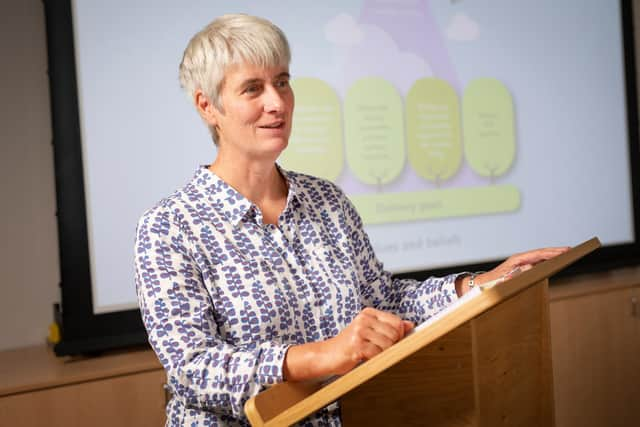Step into the new year with small carbon footprints
Scots are being urged to think green when making lifestyle choices for 2022 and beyond, to combat climate change and help create a better, futureproof society.
The call comes from Scotland’s Climate Emergency Response Group (CERG), a collective of leaders from the private, public and third sectors, delivery organisations and membership bodies who are lobbying ministers to take swifter action on the environmental crisis.
Advertisement
Hide AdAdvertisement
Hide AdThe group is pushing for the Scottish Government to implement new regulations and provide better support to help householders and businesses move quickly to a low-carbon future.


In a recent report, CERG set out a list of 12 practical solutions that can be enacted immediately.
The plan sets out the route to a green, just transition for society and calls for an urgent shift into “delivery mode” on slashing greenhouse gas emissions, with the sort of ‘emergency’ response and decisive leadership demonstrated during the Covid-19 pandemic.
Big goals can be achieved if “everyone works together”, according to Changeworks chief executive Teresa Bray, who is on CERG’s steering group.


Some of the simplest moves we can all make to shrink our carbon footprint include adopting a climate-friendly diet, boosting energy-efficiency in our houses and switching to cleaner modes of transport, she says.
“We’ve all got to look to our future and the world our children are going to inherit,” she said.
“We as individuals and communities are making choices every day about where we live, what we eat, the jobs we do, how we travel and what we spend our money on.
“If we make good choices we can create a more positive life.
Advertisement
Hide AdAdvertisement
Hide Ad““Everybody can look to see what areas of their lives they can change for the better, and together we can make a big impact.”
Small actions by citizens can help swing large actions, she says, with decisions on everything from pension investments to the food we consume and the goods we buy helping drive a shift to sustainability and lower environmental impacts.
“Heating our homes is one of the biggest contributors to climate change,” she said.
“So if you’re looking to buy a brand-new house this year you can call up the builder and insist it’s fitted out to meet zero-emissions standards before signing on the dotted line.
“Or you might want to start thinking about shifting to low-carbon heating in your current home.
“We can also make sure the food we eat is sourced as locally and sustainably as possible, and make better use of public transport and active travel options like cycling.”
But she stresses that support from government is critical in making sure “nobody gets left behind” and the move to a greener society is fair.
She said lessons learned during the Coronavirus crisis must be taken on board.
“A just transition is essential,” she said.
Advertisement
Hide AdAdvertisement
Hide Ad“It’s important to recognise, as we’ve seen with Covid, that inequalities can be exacerbated.
“When we invest in carbon reductions we must make sure that’s not making things worse for anyone.”
Other key recommendations from CERG include: upskilling the workforce and creating green jobs; and incentivising nature-friendly farming.
A message from the Editor:
Thank you for reading this article. We’re more reliant on your support than ever as the shift in consumer habits brought about by coronavirus impacts our advertisers.
If you haven’t already, please consider supporting our trusted, fact-checked journalism by taking out a digital subscription.
Comments
Want to join the conversation? Please or to comment on this article.
